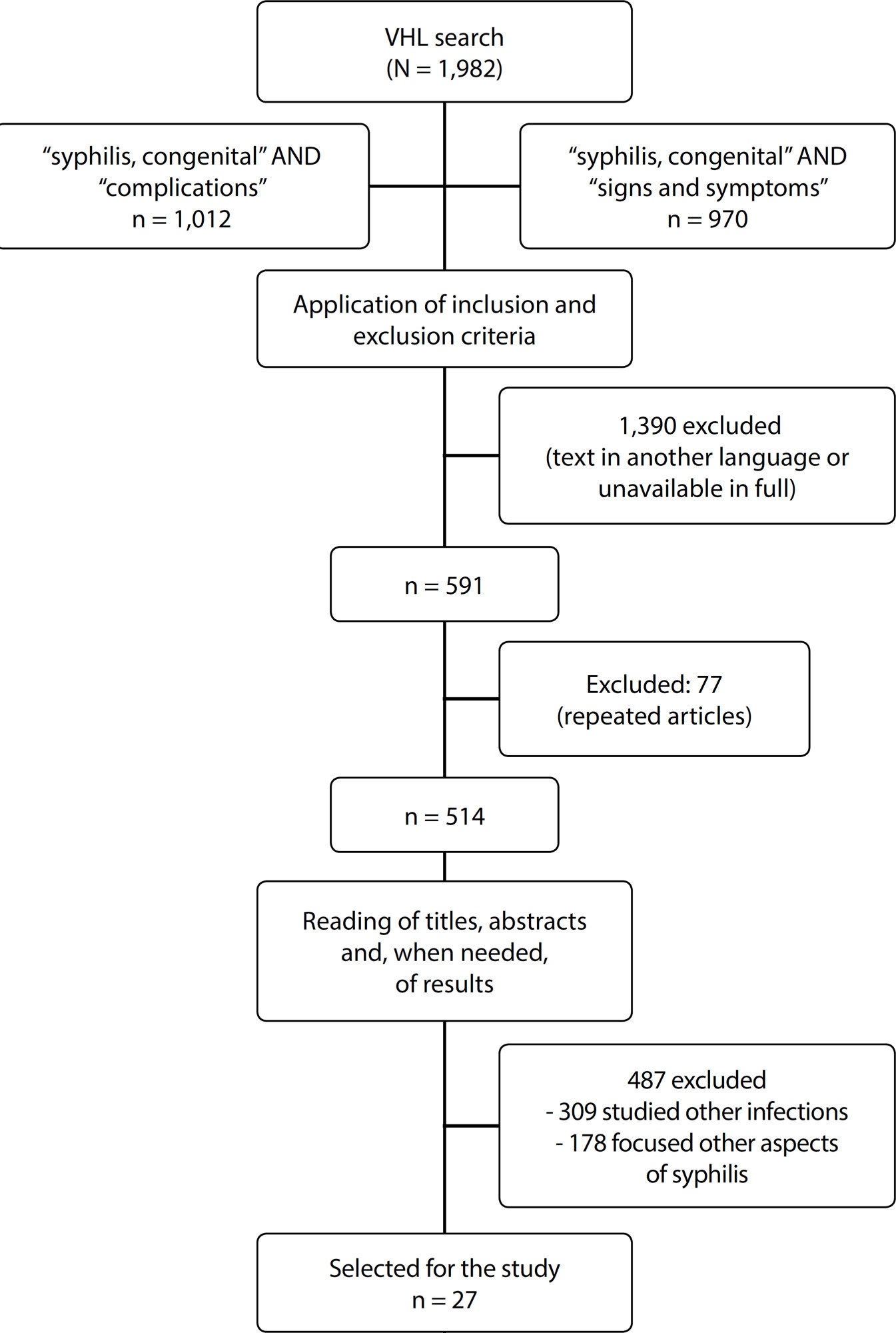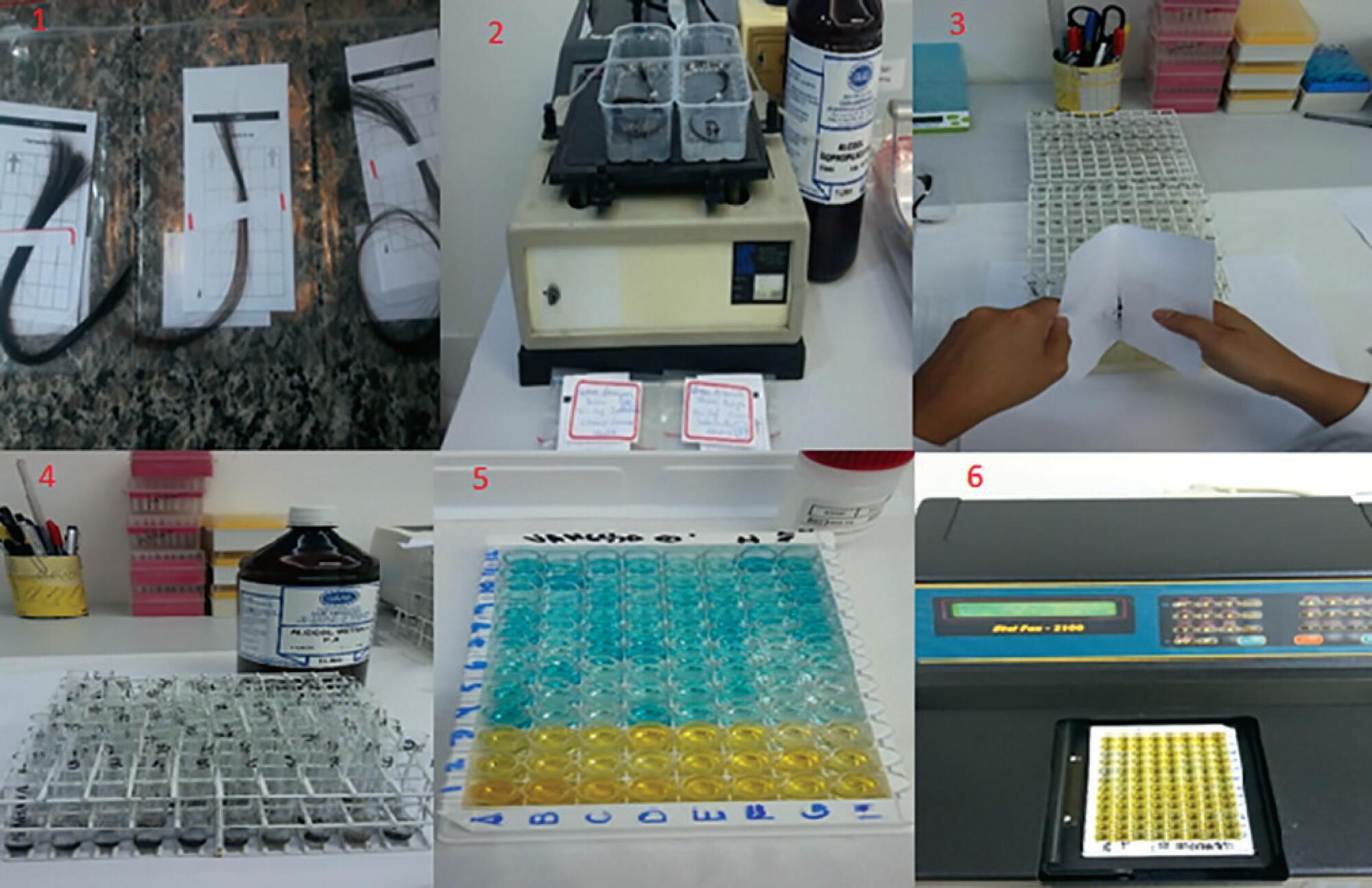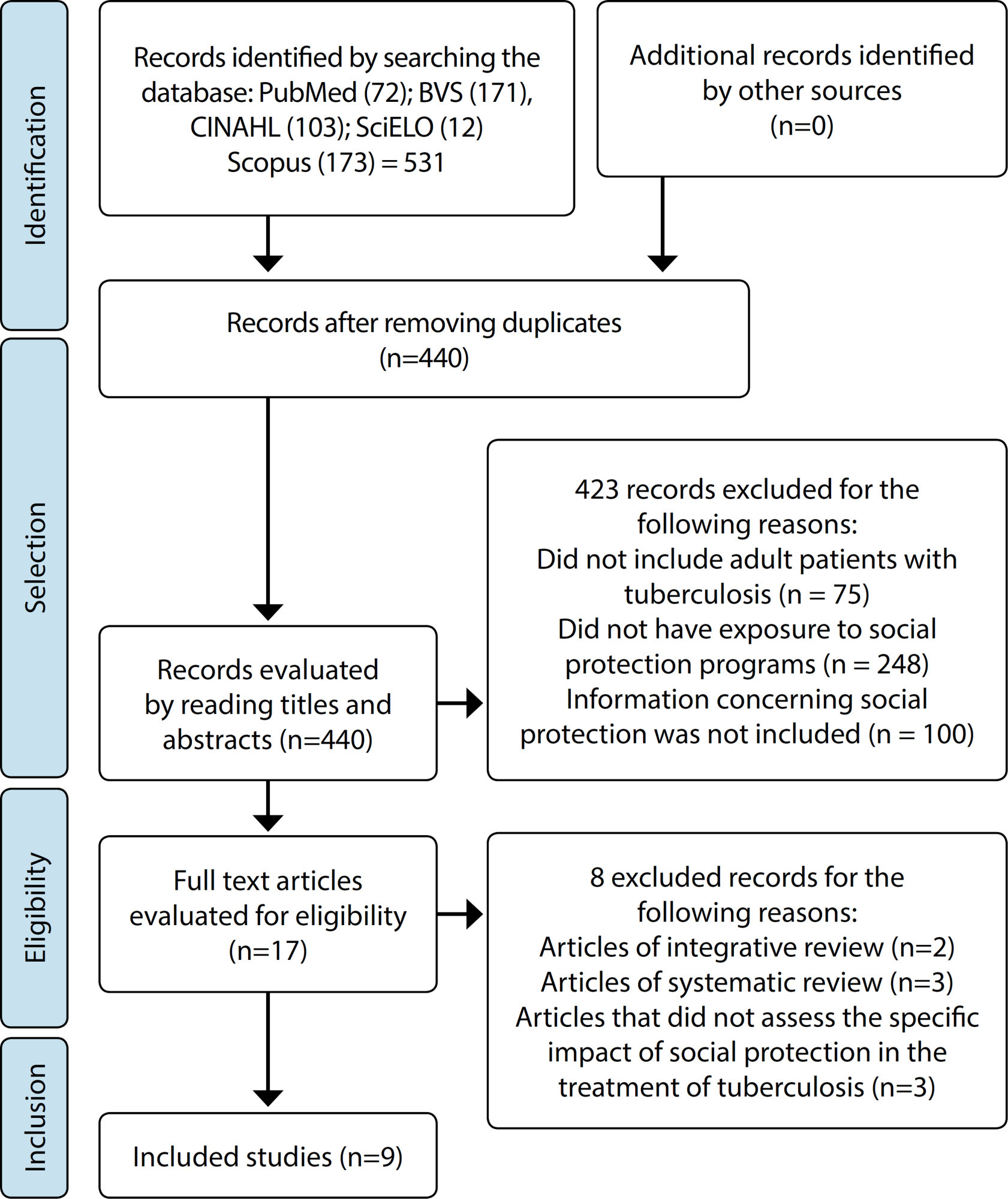-
REFLECTION01-01-2017
Transcendence, historicity and temporality of being elderly: nursing reflection-using Heidegger
Revista Brasileira de Enfermagem. 2017;70(4):891-895
Abstract
REFLECTIONTranscendence, historicity and temporality of being elderly: nursing reflection-using Heidegger
Revista Brasileira de Enfermagem. 2017;70(4):891-895
DOI 10.1590/0034-7167-2016-0275
Views0See moreABSTRACT
The objective is to reflect on historicity and temporality as paths for the transcendence of being elderly, based on the phenomenological concepts of Martin Heiddeger. A review of the concepts of transcendence, historicity and temporality was carried out in the work of Martín Heidegger, integrating them in the perspective of nursing for the elderly. The transcendence of the elderly adult is feasible by accessing the temporality of self in the path of its historicity to arrive at the understanding of itself that he has achieved: transcending, which is but a process of the Being itself. Being is time in itself existing in the world, existence given by the encounter of the past (to have been), present and future (becoming), the same encounter that determines the historicity of the Being. The encounter has been consummated and the Being is transcendence, with the understanding of the Being itself as a supreme point.
-
01-01-2017
Trascendencia, historicidad y temporalidad del ser adulto mayor: reflexión enfermera en Heidegger
Revista Brasileira de Enfermagem. 2017;70(4):891-895
Abstract
Trascendencia, historicidad y temporalidad del ser adulto mayor: reflexión enfermera en Heidegger
Revista Brasileira de Enfermagem. 2017;70(4):891-895
DOI 10.1590/0034-7167-2016-0275
Views0See moreRESUMEN
El objetivo es reflexionar en la historicidad y temporalidad como caminos para la trascendencia del ser adulto mayor, basado en los conceptos fenomenológicos de Martín Heiddeger. Se llevó a cabo una revisión de los conceptos de trascendencia, historicidad y temporalidad en la obra de Martín Heidegger, realizando su integración en la perspectiva de enfermería al adulto mayor. La trascendencia del ser adulto mayor es factible accediendo a la temporalidad del mismo en el camino de su historicidad para llegar a la comprensión de sí a la que ha llegado: trascendiendo, que no es sino un proceso del mismo ser. El ser es el tiempo en sí mismo existiendo en el mundo, existencia dada por el encuentro del pasado (haber sido), presente y futuro (devenir), mismo encuentro que determina la historicidad del ser. El encuentro se ha consumado y el ser es trascendencia, como punto supremo la comprensión del ser mismo.
-
EXPERIENCE REPORT01-01-2017
Scenario approximation in a phenomenological study in Mexico: experience report
Revista Brasileira de Enfermagem. 2017;70(4):885-890
Abstract
EXPERIENCE REPORTScenario approximation in a phenomenological study in Mexico: experience report
Revista Brasileira de Enfermagem. 2017;70(4):885-890
DOI 10.1590/0034-7167-2016-0601
Views0See moreABSTRACT
Objective:
To report our experience using scenario approximation in a phenomenological study of nursing in Mexico.
Method:
Experience report on scenario approximation to coexist with elderly in order to select the participants of a phenomenological study.
Results:
During a four-month period in 2016, visits were carried out two groups of elderly individuals where several activities were carried out. Coexistence with the elderly throughout accompaniment in the groups’ activities together with joint dialogue allowed selection of those who corresponded to the characteristics of the study objective.
Conclusion:
Scenario approximation is necessary in phenomenological studies, not only for creating empathy among the participants but also for the researchers to immerse themselves in the phenomenon under study, as shown by the first approaches of the researcher.
-
01-01-2017
Acercamiento al escenario de estudio fenomenológico en México: relato de experiencia
Revista Brasileira de Enfermagem. 2017;70(4):885-890
Abstract
Acercamiento al escenario de estudio fenomenológico en México: relato de experiencia
Revista Brasileira de Enfermagem. 2017;70(4):885-890
DOI 10.1590/0034-7167-2016-0601
Views0See moreRESUMEN
Objetivo:
Relatar la experiencia del acercamiento al escenario de un estudio fenomenológico en enfermería en México.
Método:
Relato de experiencia sobre el acercamiento al escenario de estudio para convivir con adultos mayores con la finalidad de seleccionar a los participantes de un estudio fenomenológico.
Resultados:
Se llevaron a cabo visitas durante el año 2016, en un periodo de cuatro meses a dos grupos de adultos mayores en donde se realizaron diversas actividades. La convivencia con los adultos mayores a través del acompañamiento en las actividades que realizaban en los grupos y el diálogo conjunto permitió seleccionar a aquellos que respondían a las características del objeto de estudio.
Conclusión:
Es necesaria la aproximación al escenario de estudios fenomenológicos, no sólo con la finalidad de ganar empatía de los participantes sino para sumergirse en el fenómeno de estudio, mismo que se va mostrando desde los primeros acercamientos del investigador.
-
REVIEW01-01-2017
Knowledge produced on the health of low-income older women: an integrative review
Revista Brasileira de Enfermagem. 2017;70(4):875-884
Abstract
REVIEWKnowledge produced on the health of low-income older women: an integrative review
Revista Brasileira de Enfermagem. 2017;70(4):875-884
DOI 10.1590/0034-7167-2017-0024
Views0See moreABSTRACT
Objective:
to identify the knowledge produced on the health of low-income older women.
Method:
an integrative review was conducted in February 2016 on the SCOPUS, CINAHL, MEDLINE, LILACS, EMBASE, WEB OF SCIENCE databases, and in the SciELO journals directory. After the application of inclusion and exclusion criteria, 24 articles were selected.
Results:
the knowledge produced comprises two main themes: “health in face of economic adversities” and “reciprocity in social support between low-income older women and their social network”.
Final considerations:
health professionals, especially nurses, should be attentive to aspects related to social determinants and the health of low-income older women, highlighting the fact that they are not always the recipients of care.

-
REVIEW01-01-2017
Functional health literacy and adherence to the medication in older adults: integrative review
Revista Brasileira de Enfermagem. 2017;70(4):868-874
Abstract
REVIEWFunctional health literacy and adherence to the medication in older adults: integrative review
Revista Brasileira de Enfermagem. 2017;70(4):868-874
DOI 10.1590/0034-7167-2016-0625
Views1See moreABSTRACT
Objective:
to characterize the national and international scientific production on the relationship of Functional Health Literacy and the adherence to the medication in older adults.
Method:
integrative review of literature, searching the following online databases: Scientific Electronic Library Online (SCIELO); Latin American and Caribbean Health Sciences Literature (LILACS); Medical Literature Analysis and Retrieval System Online (MEDLINE); and Cumulative Index to Nursing & Allied Health Literature (CINAHL), in June 2016. We selected 7 articles that obeyed the inclusion criteria.
Results:
all articles are from the USA. The inappropriate Functional Health Literacy affects the non-adherence to medication; however, there are several strategies and interventions that can be practiced to change this relationship.
Conclusion:
nursing needs to explorefurther this theme, since it can exert a differentiated care for adherence to medication in older adults, considering the literacy.
-
RESEARCH01-01-2017
Evaluation of the safety of hospitalized older adults as for the risk of falls
Revista Brasileira de Enfermagem. 2017;70(4):860-867
Abstract
RESEARCHEvaluation of the safety of hospitalized older adults as for the risk of falls
Revista Brasileira de Enfermagem. 2017;70(4):860-867
DOI 10.1590/0034-7167-2017-0098
Views0See moreABSTRACT
Objective:
To evaluate the safety of hospitalized older adults as for the risk of falls according to the parameters of the Morse Fall Scale.
Method:
Epidemiological, cross-sectional, prospective and descriptive study with n=75.
Results:
Average age of 71.3 years (SD±8.2); 58.7% male; 44% with low educational level; 38.7% hospitalized for cardiovascular diseases; average hospitalization of 10 days (SD±9.38); 78.7% with comorbidities; 61.3% with the calf circumference ≥ 31 cm; 62.7% were former smokers for more than 10 years; 65% did not drink alcohol; 100% did not have identification bracelet; 22.7% had similar names in the infirmary; 48% took up to five medicines; and 93.3% received some invasive procedure, especially the vessel puncture (65.3%). There was a high risk of falls in 52% of older adults.
Conclusion:
The results pointed to imminent risk of breach of patient safety, emphasizing the need for implementation of protocols and predictive scales such as the Morse scale.

-
RESEARCH01-01-2017
Quality of life of elderly people with chronic kidney disease in conservative treatment
Revista Brasileira de Enfermagem. 2017;70(4):851-859
Abstract
RESEARCHQuality of life of elderly people with chronic kidney disease in conservative treatment
Revista Brasileira de Enfermagem. 2017;70(4):851-859
DOI 10.1590/0034-7167-2017-0103
Views0See moreABSTRACT
Objective:
To describe the quality of life (QOL) of elderly people with Chronic Kidney Disease (CKD) in conservative treatment, correlating it with sociodemographic and health-related aspects.
Method:
This is a quantitative, cross-sectional, and descriptive study that used: a previously validated instrument for data collection; the WHOQOL-BREF and WHOQOL-OLD QOL scales; and the Mini-Mental State Examination.
Results:
Thirty-five elderly people (54.30% females), with mean age of 68.26 years, took part in the study. They reported, on average, 3.70 comorbidities and 5.60 complications related to CKD. Regarding QOL, the “psychological” domain (54.40±16.29) and the “death and dying” facet (37.32±23.79) were considered the most damaged ones; the most strengthened were “social relationships” (70.36±18.32) and “intimacy” (66.61±16.80). A positive correlation was verified between comorbidities and complications (p = 0.015), and an inverse correlation between the number of complications and QOL (p = 0.004).
Conclusion:
These results, if considered during the care planning, may help improving the quality of the care provided for elderly people with CKD.
-
REVIEW07-14-2021
Complications, clinical manifestations of congenital syphilis, and aspects related to its prevention: an integrative review
Revista Brasileira de Enfermagem. 2021;74(4):e20190318
Abstract
REVIEWComplications, clinical manifestations of congenital syphilis, and aspects related to its prevention: an integrative review
Revista Brasileira de Enfermagem. 2021;74(4):e20190318
DOI 10.1590/0034-7167-2019-0318
Views0See moreABSTRACT
Objectives:
to identify the scientific evidence about the clinical complications and manifestations of congenital syphilis and aspects related to its prevention.
Methods:
integrative review after a search in the databases LILACS and MEDLINE, carried out in March 2018, using the descriptors “syphilis, congenital”, “complications”, and “signs and symptoms”, leading to the selection of 27 researches.
Results:
the publications found were published from 1966 to 2017, and most of them were from Latin America and Africa. Negative outcomes, laboratory changes, and the clinical manifestations in congenital syphilis, whether early or delayed, were, respectively: low weight at birth, anemia, hepatosplenomegaly, and dental alterations. The lack of treatment of the pregnant women in the prenatal was the most common occasion in which the opportunity to prevent the complications of congenital syphilis was lost.
Conclusions:
the scientific evidences analyzed showed serious complications of congenital syphilis that could be avoided if early opportunities of diagnosing and treating the pregnant women are not lost during the prenatal.

-
ORIGINAL ARTICLE07-15-2020
Cultural adaptation of Infant Feeding Intentions Scale (IFI) for pregnant women in Brazil
Revista Brasileira de Enfermagem. 2020;73:e20190103
Abstract
ORIGINAL ARTICLECultural adaptation of Infant Feeding Intentions Scale (IFI) for pregnant women in Brazil
Revista Brasileira de Enfermagem. 2020;73:e20190103
DOI 10.1590/0034-7167-2019-0103
Views0See moreABSTRACT
Objectives:
to translate and culturally adapt the Infant Feeding Intentions Scale for pregnant women in Brazil.
Methods:
methodological study that included stages of translation, synthesis, face and content validation, back translation and semantic assessment. In the face and content and semantic validation stages, we used the Content Validity Index for individual items and for the overall scale for clarity and representativeness.
Results:
nine (100.0%) experts participated in face and content validation, and the average index obtained was 85.0% for representativeness. In the semantic assessment, performed with 31 (100.0%) pregnant women, the tool was considered clear, obtaining an average index of 91.0%.
Conclusions:
the Brazilian version of the scale was considered representative and clear. After assessing psychometric properties, the scale is expected to be valid and reliable to assess maternal intention to breastfeed exclusively until the infant’s six months of life in different Brazilian settings.
-
ORIGINAL ARTICLE03-24-2021
Development, validation and application of clinical simulation scenarios for assessment of stomatherapy specialists
Revista Brasileira de Enfermagem. 2021;74(1):e20200360
Abstract
ORIGINAL ARTICLEDevelopment, validation and application of clinical simulation scenarios for assessment of stomatherapy specialists
Revista Brasileira de Enfermagem. 2021;74(1):e20200360
DOI 10.1590/0034-7167-2020-0360
Views0See moreABSTRACT
Objectives:
to build and validate three clinical simulation scenarios and report the application with candidates for the specialist’s degree in stomatherapy.
Methods:
methodological study, building three scenarios and evaluation checklists; content validation with judges, using content validity index and Modified Kappa Coefficient; pre-test and application.
Results:
scenarios built based on nursing care for: 1. insufficiency and venous ulcer; 2. demarcation of intestinal stomia; and 3. Clean intermittent catheterization. In the content validation of the 24 items appreciated, 83%, 80%, and 92% were validated without change. In the pre-test, the objectives and checklists were adjusted. In the application, to standardize the evaluation, actors and evaluators were trained previously, and each candidate passed the three stations.
Conclusions:
scenarios built and with validated content, based on evidence and covering the three areas of stomatherapy. The pre-test allowed for adjustments in the scenarios, and the candidates achieved the expected objectives.
-
ORIGINAL ARTICLE12-07-2020
Management of home care by family caregivers to elderly after hospital discharge
Revista Brasileira de Enfermagem. 2020;73:e20200474
Abstract
ORIGINAL ARTICLEManagement of home care by family caregivers to elderly after hospital discharge
Revista Brasileira de Enfermagem. 2020;73:e20200474
DOI 10.1590/0034-7167-2020-0474
Views1See moreABSTRACT
Objective:
To understand the management of home care by family caregivers of dependent elderly people after hospital discharge.
Methods:
Qualitative research guided by hermeneutics-dialectic, anchored in the theory of communicative action. Data collection took place using a semi-structured interview with 11 participants.
Results:
Two categories were constructed: Management of the many types of care by the caregiver and the relationship between family caregiver and health care network. Care and management actions carried out routinely cause major changes in the family caregiver’s life. He/she does not recognize planning, home care periodicity or support in required procedures.
Final Considerations:
The management of home care for dependent elderly people after hospital discharge is complex, involving physical and emotional overloads, as well as difficulties in getting support from health services. The planning shared between the health team and the family since the discharge is required, and the better visibility of the role of primary care when the patient is assisted by a home care service.
-
07-09-2021
Sexuality is associated with the quality of life of the elderly!
Revista Brasileira de Enfermagem. 2021;74:e20201272
Abstract
Sexuality is associated with the quality of life of the elderly!
Revista Brasileira de Enfermagem. 2021;74:e20201272
DOI 10.1590/0034-7167-2020-1272
Views0See moreABSTRACT
Objective:
to analyze the association between sexuality and quality of life of Brazilian elderly residents in the community.
Methods:
a cross-sectional study conducted with 477 Brazilian elderly. The data were collected between August and October 2020. We used the EVASI and WHOQOL-OLD (World Health Organization Quality of Life). Data analysis was performed with Mann-Whitney, Spearman and Kruskal-Wallis correlation tests, with Bonferroni post-hoc application when necessary, considering a 95% confidence interval.
Results:
there was a statistical association between all dimensions of sexuality and the general quality of life of the elderly (p<0.05).
Conclusion:
the stimulation of sexuality can be configured as an innovative and holistic strategy focused on the promotion of health and active aging, since this study found the association between sexuality and the general quality of life of elderly people.
-
ORIGINAL ARTICLE06-01-2020
Stress and cortisol levels among members of the nursing team
Revista Brasileira de Enfermagem. 2020;73:e20180953
Abstract
ORIGINAL ARTICLEStress and cortisol levels among members of the nursing team
Revista Brasileira de Enfermagem. 2020;73:e20180953
DOI 10.1590/0034-7167-2018-0953
Views0See moreABSTRACT
Objective:
To analyze the characteristics of hospital nursing professionals with the presence of stress, and to associate this with capillary cortisol.
Method:
A cross-sectional, exploratory and correlational study, conducted in a hospital in São Paulo, Brazil. A total of 164 nursing professionals participated; the Perceived Stress Scale was administered, and hair samples were obtained for laboratory analysis. Data were entered into a Microsoft Excel spreadsheet (2010), and then into Microsoft Office and the R software, version 3.2.2.
Results:
High levels of capillary cortisol in 47% of participants suggest the presence of stress, but no statistical significance between cortisol and stress levels were found.
Conclusions:
Stress and capillary cortisol levels were indicative of stress among nursing professionals; however, no association between them was found, although the values found were above those recommended.

-
REVIEW06-18-2021
Impact of social protection programs on adults diagnosed with Tuberculosis: systematic review
Revista Brasileira de Enfermagem. 2021;74(3):e20190906
Abstract
REVIEWImpact of social protection programs on adults diagnosed with Tuberculosis: systematic review
Revista Brasileira de Enfermagem. 2021;74(3):e20190906
DOI 10.1590/0034-7167-2019-0906
Views0See moreABSTRACT
Objectives:
to analyze the impact of social protection programs on adults diagnosed with Tuberculosis.
Methods:
systematic review conducted by PRISMA, with registration PROSPERO CRD42019130884. The studies were identified in the VHL, PubMed, Scielo, CINAHL and Scopus databases, using the descriptors “Social Protection” and “Tuberculosis”, in combination with keywords combined with Boolean operators AND and OR. Observational and interventional studies published until October 23, 2019, in Portuguese, English and Spanish, were included.
Results:
social protection programs improve the treatment of tuberculosis, cure rates, adherence to treatment, the provision of services for the control of TB and reduce poverty.
Conclusions:
social protection programs have a positive impact on the treatment and control of people diagnosed with Tuberculosis.

-
ORIGINAL ARTICLE12-05-2019
Functional health literacy in hypertensive elders at primary health care
Revista Brasileira de Enfermagem. 2019;72:266-273
Abstract
ORIGINAL ARTICLEFunctional health literacy in hypertensive elders at primary health care
Revista Brasileira de Enfermagem. 2019;72:266-273
DOI 10.1590/0034-7167-2018-0897
Views0See moreABSTRACT
Objective:
to assess the relationship between inadequate functional health literacy and inadequate blood pressure control in older people with hypertension in Primary Health Care.
Method:
a cross-sectional study with sample calculated at 392. SAHLPA-18 tool was used for functional health literacy; blood pressure was measured; sociodemographic and clinical data were collected. Hierarchical logistic regression was used.
Results:
(high) inadequate blood pressure and (low) functional inadequate health literacy were present in 41.6% and 54.6% of the people, respectively. Factors associated with inadequate blood pressure were: inadequate functional health literacy, black-brown skin color, overweight-obesity, hypertension diagnosis time, non-adherence to exercise/diet, drug treatment. Schooling had no association with inadequate blood pressure
Conclusion:
hypertensive elderly people with inadequate health literacy were more likely to have inadequate blood pressure. Thus, health professionals need to value functional health literacy as a possible component to control blood pressure.
Search
Search in:
Nuvem de Tags
Adolescente (85) Atenção Primária à Saúde (239) COVID-19 (91) Criança (91) Cuidados de Enfermagem (269) Educação em Enfermagem (151) Educação em Saúde (139) Enfermagem (930) Enfermagem Pediátrica (86) Estudantes de Enfermagem (77) Estudos de Validação (131) Família (87) Idoso (208) Promoção da Saúde (99) Qualidade de Vida (104) Saúde do Trabalhador (86) Saúde Mental (145) Saúde Pública (82) Segurança do Paciente (150) Tecnologia Educacional (100)



